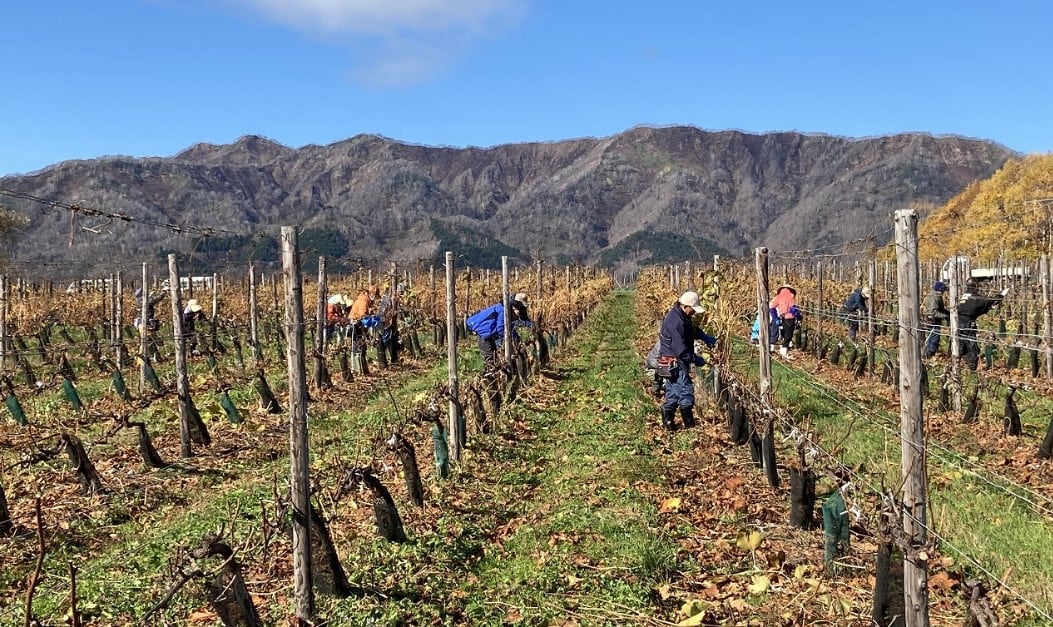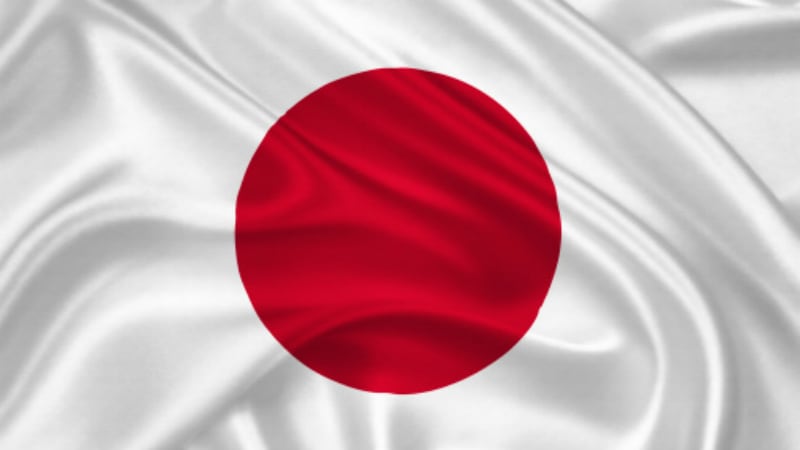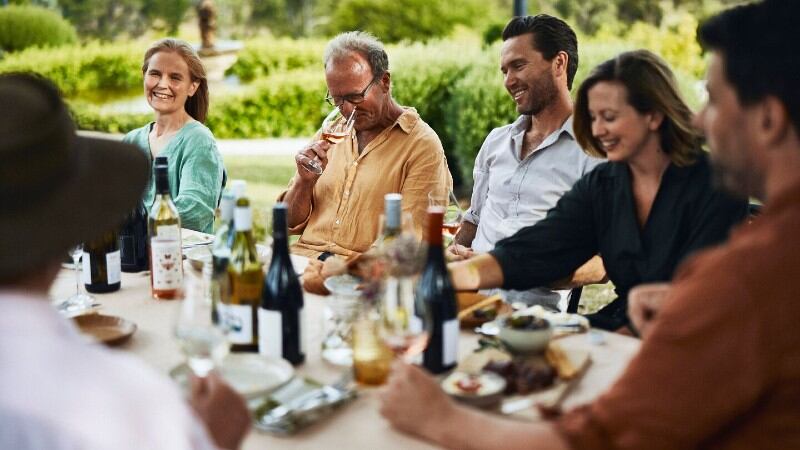For a country better known for beer, sake, shochu and whiskey, wine consumption is gradually increasing in Japan. In 2019, the per-capita consumption of wine was about four bottles, this was 1.5 times more than that of 2009.
Currently, Japan imports more wine (60%) than it produces (40%). About 97% of domestic wineries are small and medium-sized enterprises, according to the National Tax Agency Japan. This means most producers produce less than 100 kilo litres of wine.
Ageing population
As wine consumption continues to grow, and production needs to increase to cater to this higher demand, the country’s rapidly ageing population proves to be the biggest hurdle.
“There are many problems facing Japan’s wine industry, but we believe that the biggest problem is the ageing of the wine farmers and the lack of successors. Many farmers in Japan are family owned, and it is becoming difficult to find successors, for example, a young family member that takes over when the farmers get older and retire,” said Aya Jindo, marketing group manager at Mercian Corporation, an entity under Kirin Holdings.
Mercian Corporation produces and sells domestic wine, including the popular Chateau Mercian, as well as importing wine from partner wineries overseas such as Frontera and Casillero del Diablo.
“We work with agricultural corporations to expand company-managed vineyards as well as supporting wine farmers in their manual labour in the vineyard. We are also contributing to solving these kinds of social issues by increasing the number of jobs in the vineyards managed by the company, such as employing so-called “silver” human resources (older workers) and helping people to find jobs in agriculture and sub-collaboration projects.”
For Hokkaido Wine, a winery based in Hokkaido, it is turning to smart agriculture to reduce pressure on its ageing farmers and winery staff.
The firm has just 81 employees operating a winery that produces wines varieties such as Kerner, Pinot Blanc, Gewurztraminer, Zweigelt, Pinot Noir, and Niagara, Campbell Early.
The winery is currently trialling unmanned robots for pesticide spraying and weed control on its winery, in collaboration with Hokkaido University, and plans to commercialise this robot in five years.
Global warming
The National Tax Agency Japan has designated Hokkaido, Yamanashi, Nagano, Yamagata, Osaka as wine-making regions.
“Hokkaido's grape producing region experience cool nights which grows grapes with high sugar content and organic acids, at the same time, allows for low storage temperatures to preserve the natural flavours of the grapes in the finished wine,” said Naoyuki Kishi, marketing director at Hokkaido Wine.
However, the domestic wine market faces the issue of global warming which affects yield and quality.
For Mercian, this meant, “we had to move the harvest season up a few days in the last 10 years due to rising temperatures. However, it is not the biggest issue. The sugar content of the grapes tends to go up, so ripening is faster for some varieties. There may come a time in the future where some Japanese vineyards will have to move the vineyards to cooler climates as the current areas experience higher temperatures,” Jindo said.
Keeping up the sales
The Château Mercian brand achieved 98% year-on-year growth in October. The cumulative total for the period from January to October was 102% of the previous year's level.
The firm is work on expanding sales channels particularly to target younger consumers.
In recent years, Jindo said the sparkling, organic and non-alcoholic categories within wine have been growing in popularity, “the organic category has been well received, especially by young people, due to growing interest in ethical consumption.”
According to her, Japanese wine is unique especially when the Koshu grape variety is used.
This variety is indigenous to Japan: “One of the most unique characteristics of Koshu is that it produces elegant and delicate-tasting wines with low alcohol (around 10-11%) with aromas of Japanese citrus fruits such as yuzu that go well with Japanese food.”
Because Koshu grapes have a light purple skin, they can be used to produce orange wine, a type of wine made by leaving the grape skins in contact with the juice, creating an orange-hued wine.
For Hokkaido Wine, sales have been relatively stagnant at JPY 2.2 billion (US$19 million) annually over the last five years.
The company produces wine for the domestic market as well as exports to China where sales are steadily growing, according to the firm.
Kishi added that the COVID-19 pandemic had affected many businesses as wineries and alcohol shops were closed, and lesser tourist market.
After the pandemic, wine sales are expected to pick up in hotels, restaurants, izakayas (Japanese-style pubs), supermarkets and convenience stores.
In Japan, most people drink wine at a restaurant or pub setting in the cities, and at home for those living outside the city.
Promoting Japan wine
Despite all the challenges, businesses are optimistic about the future of the wine market in Japan.
Château Mercian plans to collaborate with wineries in different regions to promote Japanese wine through events, as well as disseminate information on Japan wine not just domestically but also overseas.
The number of stores handling Château Mercian wines outside of Japan, mainly in the UK, has increased by 144% year-on-year.
Mercian Corporation’s Château Mercian Mariko Winery in Nagano was ranked 33rd at this year’s World's Best Vineyards organised by William Reed Business Media.
This is the second year the winery was part of this competition, and is the only Japanese winery on the top 50 list.
There are said to be more than 60,000 wineries around the world, 2,000 were nominated and only the top 50 were awarded. “We consider it a very prestigious award,” Jindo said.
Château Mercian Mariko Winery’s 30 hectares are planted with French grape varieties, predominantly Merlot, Chardonnay and Syrah, although there is also Cabernet Sauvignon, Sauvignon Blanc, Cabernet Franc, Pinot Noir and Petit Verdot, with indigenous varieties grown at other sites.
Kishi added that Japan’s wine industry should not be competing against other major mature markets in Europe, South America and Oceania.
“I think Japan wine can co-exist with wines from other regions. We would be happy if global consumers can recognise Hokkaido as a wine producing region.”




